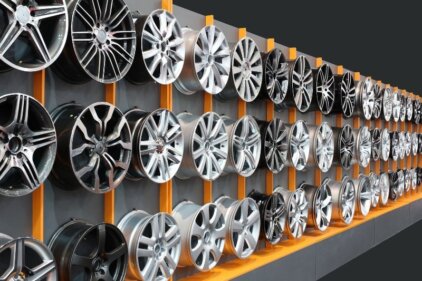The Volkswagen Beetle is an automotive icon that has captured the hearts and imaginations of people around the world. From its humble origins in 1930s Germany to its global popularity in the 20th century, the Beetle has become more than just a car – it is a cultural phenomenon. As an avid car enthusiast, I have always been fascinated by the impact and significance of the Volkswagen Beetle. In this article, we will delve into the historical context, the impact on popular culture, the role in counterculture movements, the symbol of freedom and individuality, the influence on automotive design, the global popularity and sales success, the enduring legacy and nostalgic appeal, as well as the cultural references and appearances of the Beetle in media. By the end of this exploration, we will have a deeper understanding of the lasting impact of the Volkswagen Beetle on global culture.
Historical Context and Origins of the Volkswagen Beetle
To truly appreciate the cultural significance of the Volkswagen Beetle, it is important to understand its historical context and origins. The Beetle was first designed by Ferdinand Porsche in the 1930s, at the request of Adolf Hitler who wanted an affordable and reliable car for the German people. The car was initially named the “KdF-Wagen” (Kraft durch Freude), meaning “Strength through Joy.” However, production was interrupted due to World War II, and it wasn’t until after the war that the Beetle truly began to make its mark on the world.
The Impact of the Volkswagen Beetle on Pop culture
In the post-war era, the Volkswagen Beetle quickly gained popularity and became a symbol of economic recovery and optimism. Its unique design, with its rounded shape and distinctive features, made it instantly recognizable on the roads. The Beetle’s affordability and reliability also made it accessible to a wide range of people, further contributing to its popularity. As the Beetle became more prevalent on the streets, it began to seep into popular culture, appearing in movies, television shows, and even songs. It became a symbol of the 1960s counterculture movement, representing a rejection of mainstream values and a celebration of individuality.
The Beetle’s Role in Counterculture Movements
During the 1960s and 1970s, the Volkswagen Beetle became closely associated with counterculture movements, particularly in the United States. The car’s small size, affordability, and ease of customization made it the perfect vehicle for those seeking to express their individuality and challenge societal norms. The Beetle became a canvas for self-expression, with owners adorning their cars with vibrant paint jobs, peace signs, and other symbols of the counterculture movement. The car was often seen at protests and rallies, further solidifying its association with the rebellious spirit of the era.
The Beetle as a Symbol of Freedom and Individuality
One of the reasons the Volkswagen Beetle has had such a lasting impact on global culture is its association with freedom and individuality. The car’s small size and maneuverability made it perfect for exploring the open road and embarking on adventures. The Beetle represented a departure from the conformity of the post-war era, allowing individuals to express their unique identities and break free from societal expectations. Whether it was a young couple embarking on a road trip or a group of friends heading to a music festival, the Beetle was often the vehicle of choice for those seeking freedom and adventure.
The Beetle’s Influence on Automotive Design
In addition to its cultural significance, the Volkswagen Beetle has also had a profound influence on automotive design. The car’s compact size and efficient use of space challenged traditional notions of what a car should look like. The Beetle’s rounded shape and streamlined design were not only visually appealing but also contributed to its aerodynamic performance. These design elements have since been incorporated into many other vehicles, shaping the future of automotive design. The Beetle’s impact can be seen in modern cars that prioritize fuel efficiency, space optimization, and unique aesthetics.
The Beetle’s Global Popularity and Sales Success
The Volkswagen Beetle’s popularity was not limited to a specific region or country. It quickly gained a global following, becoming a beloved car in countries around the world. From Europe to the Americas, from Africa to Asia, the Beetle captured the imagination of people from different cultures and backgrounds. Its affordability, reliability, and distinctive design made it a hit in both urban and rural areas. The Beetle’s sales success was unprecedented, with millions of units sold throughout its production history. This global popularity solidified the Beetle’s status as a cultural phenomenon and ensured its place in automotive history.
The Beetle’s Enduring Legacy and Nostalgic Appeal
Although production of the original Volkswagen Beetle ceased in 2003, its legacy and nostalgic appeal live on. The car continues to be celebrated and cherished by enthusiasts and collectors worldwide. Vintage Beetles can still be seen on the roads, well-maintained and lovingly restored. The Beetle’s enduring legacy is a testament to its timeless design and the emotional connection it forged with its owners. Even today, the sight of a Beetle evokes a sense of nostalgia and fond memories of a bygone era.
Cultural References and Appearances of the Beetle in Media
The Volkswagen Beetle’s cultural impact can be seen in its numerous references and appearances in media. From movies like “Herbie: Fully Loaded” to songs like “Little Deuce Coupe” by The Beach Boys, the Beetle has left a lasting impression on popular culture. Its appearance in films and music has further cemented its status as an iconic symbol of freedom, individuality, and adventure. The Beetle’s influence can also be seen in the world of advertising, with its distinctive shape often used to evoke a sense of nostalgia and authenticity.
The Lasting Impact of the Volkswagen Beetle on Global Culture
In conclusion, the Volkswagen Beetle is more than just a car – it is a cultural phenomenon that has left an indelible mark on global culture. From its origins in 1930s Germany to its global popularity in the 20th century, the Beetle has symbolized freedom, individuality, and adventure. Its impact on popular culture, counterculture movements, and automotive design cannot be overstated. The Beetle’s enduring legacy and nostalgic appeal continue to captivate enthusiasts and evoke a sense of nostalgia for a bygone era. As we reflect on the cultural significance of the Volkswagen Beetle, we can appreciate its lasting impact on global culture and its status as an automotive icon.





